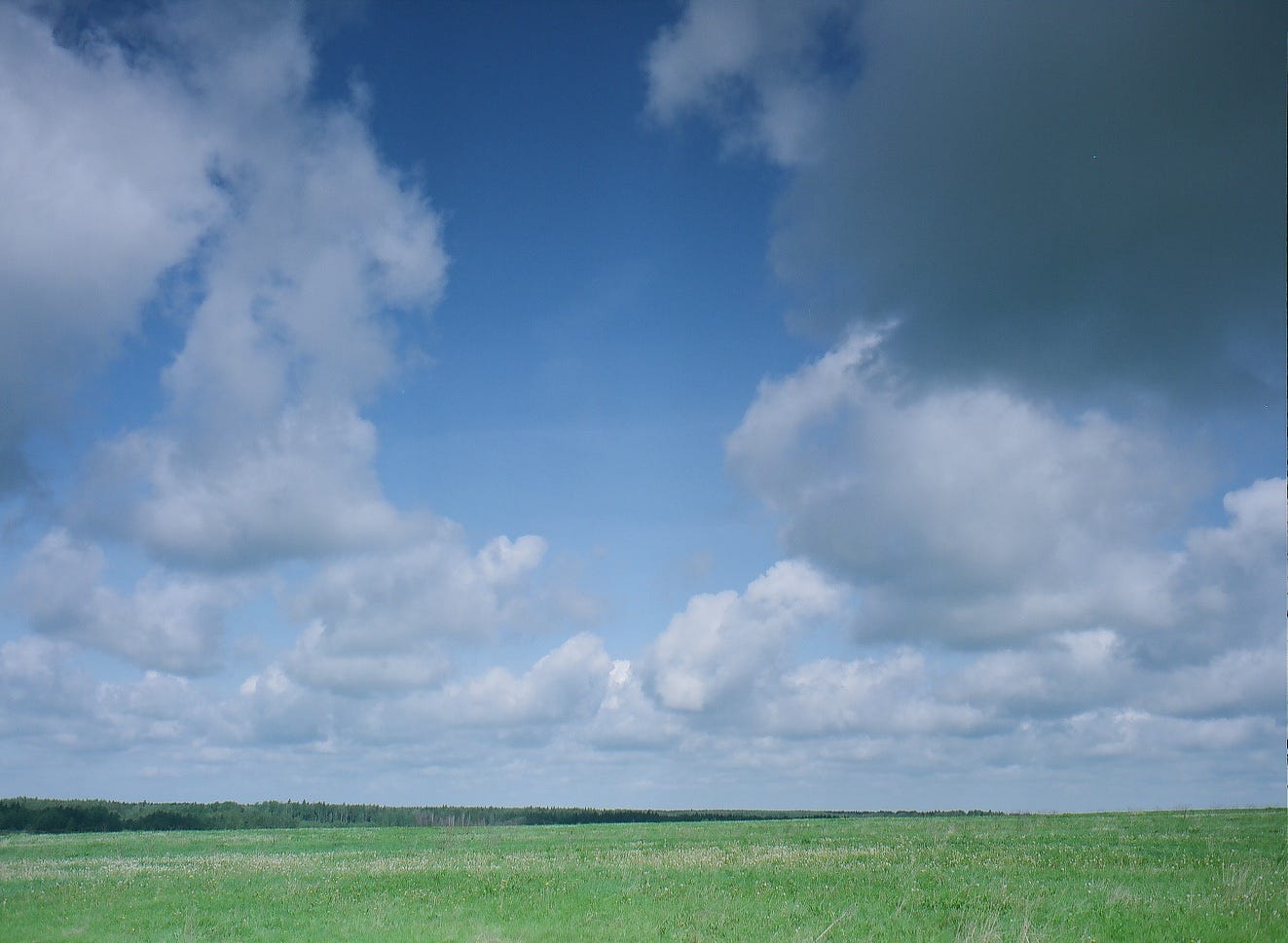Exploring the wonders of nature in Russia (a.k.a, extreme outdoor recreation)
How active or wilderness outdoor recreation aligns with sightseeing of the most beautiful places in Russia.
In the picture: Somewhere in Russia.
Summer is a season for being outdoors, to explore new and interesting places. Asking what to see in Russia typically gets you standard suggestions, must-see attractions: Golden Ring, St.Petersburg, perhaps Lake Baikal. However, these are renowned mostly man-made historic attractions and tourist destinations, beaten paths, which represent a tiny fraction of Russia. Russian land has an abundance of places, sights created by nature, from simply beautiful to breathtaking, but exploring them comes with a bit of a challenge.
Think about places like Manpupuner (Russian: Маньпупунёр); I bet few people have ever heard of it. It was declared one of the Seven Wonders of Russia, and this ignited its popularity. Manpupuner used to be a worship site of the Mansi, the ethnic group that still populates the area. Use the search engine of your choice to check the pictures of Manpupuner; looking at them, you’ll probably think: “I’d love to visit this place.” That is easier said than done.
To get to Manpupuner, you first need to get to Ukhta or Syktyvkar; from Moscow, that is 4 hours on a plane or 26 hours by train. Then it's going to be two bus trips, one of which is through a narrow forest dirt road, and then roughly 200 kilometers (124 miles) of motorboat ride, followed by 40 kilometers (25 miles) on foot.
Another place I doubt many people have heard of is the Putorana Plateau (Russian: Плато Путорана), an area of fantastic natural beauty. It is a piece of largely untouched nature, like it was thousands of years ago. Yet, Putorana Plateau has no roads to reach it and is accessible only on foot through taiga, or perhaps by using heavy-duty off-road vehicles. There are helicopter tours, though, for those few who can afford them.
Kamchatka (Russian: Камчатка), which is located on the peninsula, has no road connections with the rest of the country. The only way of getting there is by plane, which is a nine-hour direct flight from Moscow. Coming to Petropavlovsk-Kamchatsky does not get you much closer to the beautiful and untouched nature of Kamchatka, as to see its volcanoes, rivers, and waterfalls, you’ll need a helicopter ride or, again, driving a buhanka vehicle and spending days hiking into the hostile wilderness. It is hostile because of bears, who freely roam the area, mosquitoes, and gnats, which threaten to eat you alive. What you want to visit in Kamchatka is its Geyser Valley (Russian: Долина Гейзеров), another one of the Seven Wonders of Russia, yet another inaccessible location unless you're a seasoned outdoorsman. Kamchatka is known for its hot springs, many of which are located far away from any civilization, and while some of them have some infrastructure, the amenities can be quite modest.
There are commercially organized boat tours to another attraction created by nature, the Lena Pillars (Russian: Ленские Столбы), but only if you manage to get to Yakutsk. Alternatively, it’s taking buses, then switching to a motorboat, as Lena Pillars are best viewed from the Lena River. If you want to see petroglyphs, it's an extra hike through the wilderness.
Arkaim (Russian: Аркаим) is an ancient site that was abandoned and buried four thousand years ago, only to be discovered in 1987. Yet, it is located in the middle of nowhere and hard to reach unless you're willing to spend days on the train, driving on bad roads, hiking for hours, and finally sleeping in tents or simple cabins. Many consider Akraim to be a place of power, so it's quite popular in season.
I could continue listing places worth visiting in Russia because they are interesting, picturesque, hold special vibes, and are unique and ancient, but exploring the wonders of nature in Russia equals extreme wilderness hiking. If you’re into it, welcome to the Russia even very few locals get to see in their lifetime. It’s not only about corners of the country you’d never see riding a train or driving a car, but also about the whole lifestyle of backpackers: survival away from civilization, all the challenges, and the romantic parts of it. In Russia, it has been extremely popular since Soviet times: hiking, rafting, rock climbing, fishing, and backpacking.
Backpacking, along with hiking, stands out in this list because it seems to be one of the primary ways of getting to the places of untouched nature in Russia. That means sleeping in tents, no bathroom, no shower, and food cooked on an open fire, which you have to bring with you, as there are no stores anywhere near. There are no trailheads with information, toilets, and water, no directional signs, none of those amenities my readers from the US and Canada enjoy should an idea of wilderness hiking cross their mind. In Russia, you get to experience a backpacker’s life in its most primal form. There are tourist clubs and informal groups, as well as businesses that organize backpacking trips to the wilderness.
Needless to say, backpacking with Russians for days, with no intervention of modern technologies, living a simple down-to-earth life in the wilderness, you’d experience Russians and their ways as they are. You’ll be tired but full of experiences and new impressions; you’ll make a lot of new friendships that will last, and see nature in places where man's foot rarely steps.
Hint: To get more pictures of the places mentioned, use Russian names in searches.




Sounds very similar to Australia.. all of the good places involve shite that may well kill you, though we do have so called roads to most places.
Any sane person would stay away, but you make it sound very appealing.
It looks like Russia needs to invest heavily on transportation hubs and transport corridors. Which make me think why they put their reserves on foreign jurisdictions.